What is Regenerative Agriculture? This agricultural practice aims to improve soil health, restore biodiversity and enhance ecosystems. It differs from traditional and organic practices as it focuses on long-term sustainability and regeneration of soil and ecosystems. Its importance for the future of agriculture and the environment is immense, offering a more sustainable and environmentally friendly approach. In this article, we will travel together to share lessons from the land.
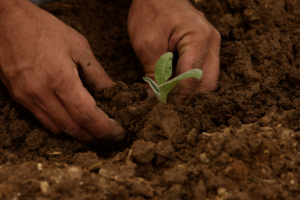
Regenerative agriculture began in the 1980s and has since evolved and been adopted by many farming communities worldwide. Its history includes important moments, such as its recognition by international organizations such as the Food and Agriculture Organization (FAO), as well as continued research and innovation in this area.
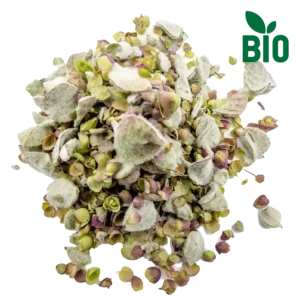
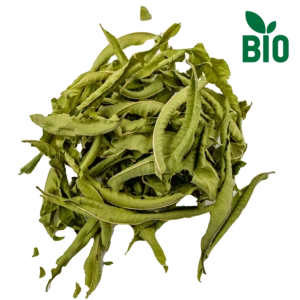
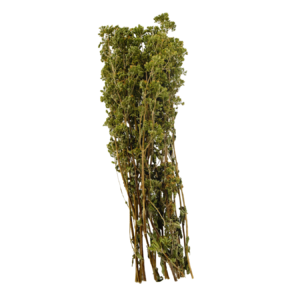
Regenerative agriculture is applied to many crops, including herbs. Using practices such as ground cover, multiple crops and natural fertilizers, we grow herbs in a sustainable and ecologically friendly way. Our company, tofillo, launched an ambitious plan in March 2024, transitioning from traditional organic farming to sustainable practices through regenerative agriculture.
We cultivate malotira, dittany, sage, lemon verbena, rosemary and oregano with regenerative practices.
Growing herbs with regenerative agriculture offers significant benefits for the environment. This method improves soil health, increases biodiversity and reduces erosion. In addition, regenerative agriculture reduces the use of chemicals, helping to conserve natural resources and protect water. By implementing these sustainable practices, we can create resilient ecosystems that support sustainability and environmental health.

However, herbs not only help protect the environment, but can be part of the solution to agricultural challenges. Herbs, with their anti-parasitic and anti-inflammatory properties, protect and enhance plant health. For example, oregano extract can be used as a spray on plants to protect against bacteria and fungi. Thus, herbs offer natural solutions to crop problems and contribute to sustainable agriculture.
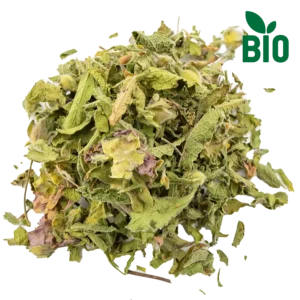
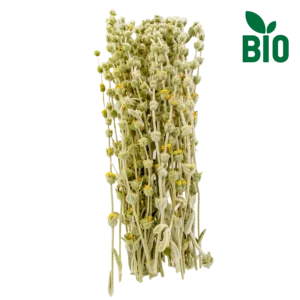

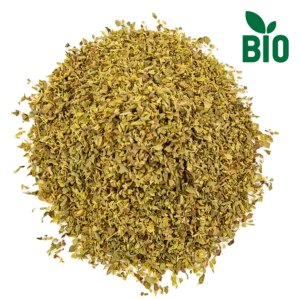
Supporting local communities and small farmers is important. By promoting the consumption of herbal teas from regenerative crops, we enhance the economic well-being of local producers and promote a healthy lifestyle.
The transition to regenerative agriculture faces several challenges. Farmers often face high initial costs, difficulties in accessing specialized knowledge and technical support, and the need to change traditional farming practices. In addition, adapting to new farming methods can require time and patience, which can be a discouraging factor for farmers.
Solutions to the challenges of this method include providing education and training to farmers to equip them with the necessary knowledge and skills. Financial support through subsidies and incentives can help reduce upfront costs. In addition, promoting cooperation and exchange of experiences among farmers can facilitate the transition and adoption of sustainable practices.
The future of regenerative agriculture and botanical crops is bright. With thiw way of cultivation, we can change the future of agriculture, protecting the environment and promoting our health. Technology and innovation will play an important role in this change. Let’s act together for a sustainable future by supporting regenerative agriculture and the consumption of botanical teas.
FAQs
Regenerative agriculture is a farming method that focuses on improving soil health, increasing biodiversity and minimizing the use of chemicals. It differs from other agricultural practices as it aims to revitalize ecosystems rather than simply maintain them.
The main environmental benefits of regenerative agriculture include improving soil health, increasing biodiversity, reducing erosion, and reducing chemical use.
Herbs contribute to soil and plant health with this method, through their anti-parasitic and anti-inflammatory properties. They help improve soil structure, enhance biodiversity and provide natural protection to plants against diseases and pests.
The health benefits of consuming herbal teas from regenerative crops include higher nutrient content, freedom from chemical residues and improved taste. In addition, they support sustainable agriculture that helps protecting the environment.
The challenges of transitioning of this method include high initial costs, lack of knowledge and the need to change traditional practices. These challenges can be addressed through farmer education, financial support and incentives. Also, promoting cooperation and knowledge sharing among farmers contributes significantly to solving these issues.
Subscribe to our newsletter to stay informed about herbs, recipes, exclusive offers, and receive a 15% discount on your first order!

Ευχαριστούμε πολύ τα παρακάτω websites για τη συνδρομή τους σε επιπρόσθετο, ελεύθερο φωτογραφικό υλικό (free stock) που χρησιμοποιείται στην ιστοσελίδα μας:
Pixabay.com
Pexels.com
Unsplash.com
Freepik.com
Canva.com
Adobe.com
Σταύρος Δεβεράκης (Φωτογράφος)
Many thanks to the following websites for their subscription to additional, free stock photography used on our website:
Pixabay.com
Pexels.com
Unsplash.com
Freepik.com
Canva.com
Adobe.com
Stavros Deverakis (Photographer)